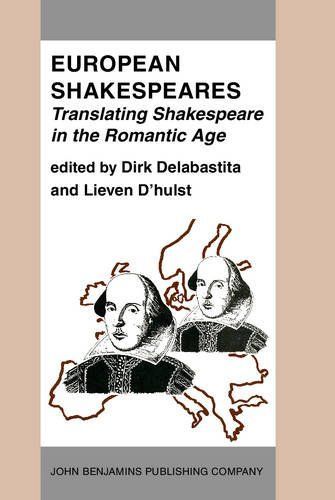
European Shakespeares Translating Shakespeare in the Romantic Age
Where, when, and why did European Romantics take to Shakespeare? How about Shakespeare's reception in enduring Neoclassical or in popular traditions? And above all: which Shakespeare did these various groups promote? This collection of essays leaves behind the time-honoured commonplaces about Shakespearean translation (the 'translatability' of Shakespeare's forms and meanings, the issue of 'loss' and 'gain' in translation, the distinction between 'translation' and 'adaptation', translation as an 'art'. etc.) and joins modern Shakespearean scholarship in its attempt to lay bare the cultural mechanisms endowing Shakespeare's texts with their supposedly inherent meanings. The book presents a fresh approach to the subject by its radically descriptive stance, by its search for an adequate underlying theory along interdisciplinary lines, and not in the least by its truly European scope. It traces common trends and local features not just in France and Germany, but also in Hungary, Italy, the Netherlands, Portugal, Russia, Scandinavia, and the West Slavic cultures.